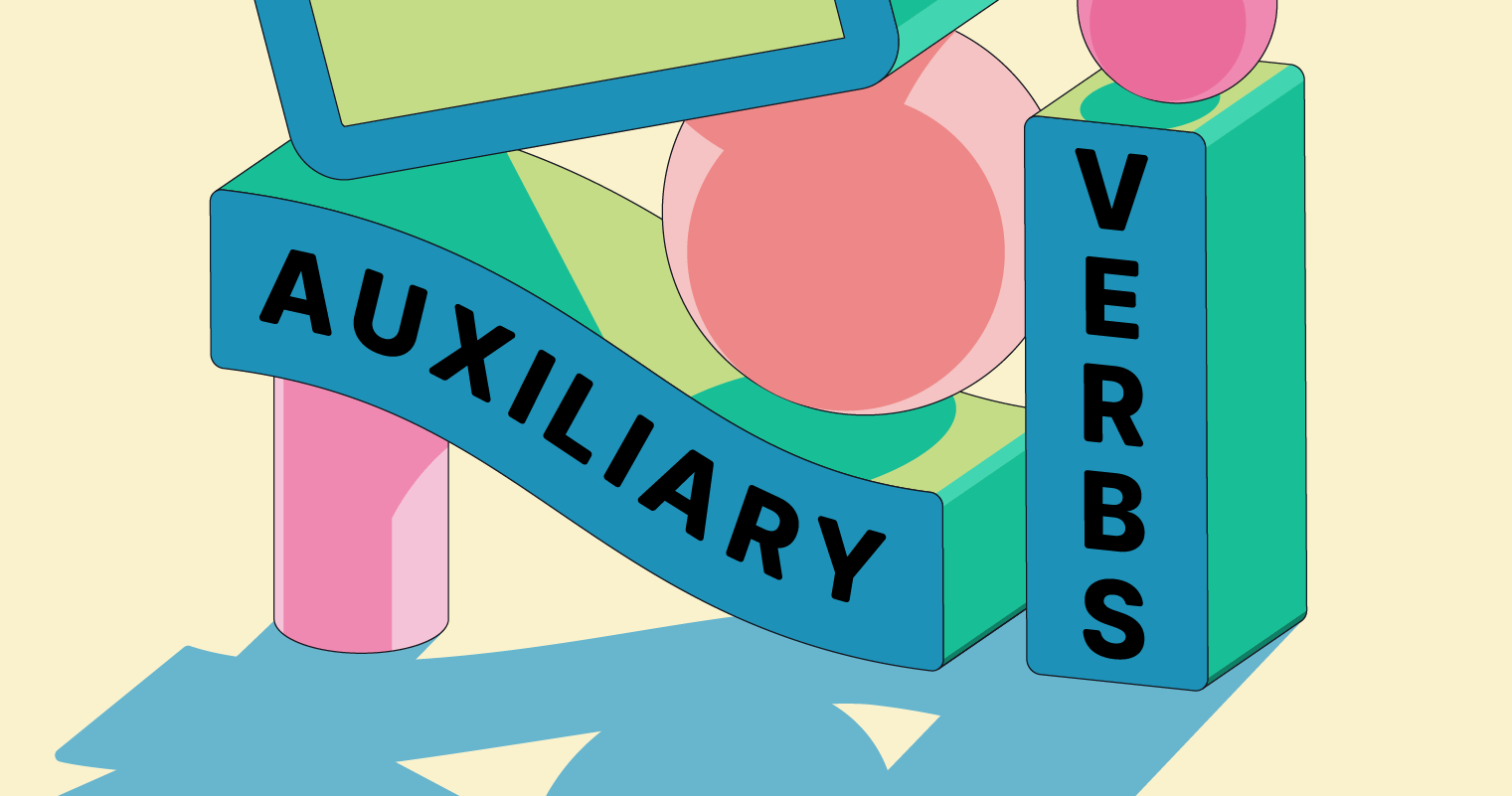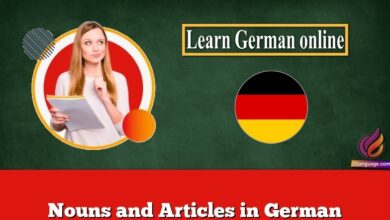Auxiliary verbs in German

Auxiliary verbs in German.Auxiliary verbs or “helping verbs” as they are commonly known play an indispensable role. Though they may seem inconspicuous or even unimportant at first glance, these small yet mighty verbs fundamentally shape the way we express tense, mood, aspect, and voice.

Explanation about Auxiliary verbs in German
These verbs are used in conjunction with the infinitive or past participle form of the main verb to construct complex tenses like the Perfekt (perfect), Plusquamperfekt (pluperfect), and Futur I & II (future I & II).
Here’s a quick rundown of how each auxiliary verb is commonly used:
- Sein: Primarily used for intransitive verbs that imply a change of state or position. For example, in the sentence “Er ist gekommen” (He has come), “ist” is the auxiliary verb and “gekommen” is the past participle of the main verb “kommen” (to come).
- Haben: This is used for transitive verbs and intransitive verbs that do not imply a change of state or position. For example, in “Ich habe gegessen” (I have eaten), “habe” is the auxiliary verb and “gegessen” is the past participle of “essen” (to eat).
- Werden: Used for forming the future tense and passive voice. In the sentence “Ich werde lesen” (I will read), “werde” is the auxiliary verb and “lesen” is the infinitive of the main verb. For the passive voice, “Das Buch wird gelesen” (The book is being read), “wird” is the auxiliary and “gelesen” is the past participle of the main verb “lesen.”
These auxiliary verbs are also essential in forming the Konjunktiv (subjunctive) mood, which is used to express hypothetical situations, wishes, or suggestions.
Examples for using Auxiliary verbs in German
| Tense/Mood/Voice | Auxiliary Verb | Example Sentence | Translation | Notes |
|---|---|---|---|---|
| Perfekt (Perfect) | sein | Er ist gegangen. | He has gone. | Intransitive verb implying change of state. |
| Perfekt (Perfect) | haben | Ich habe gegessen. | I have eaten. | Transitive verb. |
| Plusquamperfekt | sein | Sie war gegangen. | She had gone. | Intransitive verb implying change of state. |
| Plusquamperfekt | haben | Du hattest gegessen. | You had eaten. | Transitive verb. |
| Futur I | werden | Wir werden sehen. | We will see. | Future tense with a full verb. |
| Futur II | werden + haben | Du wirst gegessen haben. | You will have eaten. | Future perfect tense. |
Phrases about Auxiliary verbs in German
| Auxiliary Verb | Phrase in German | English Translation | Usage Context |
|---|---|---|---|
| sein | Er ist gekommen. | He has come. | Perfekt tense, change of state |
| sein | Ich bin müde. | I am tired. | Present tense, state of being |
| sein | Wir waren dort. | We were there. | Simple past tense |
| haben | Du hast recht. | You are right. | Present tense |
| haben | Ich habe es versucht. | I have tried it. | Perfekt tense |
| haben | Sie hatten Angst. | They were scared. | Simple past tense |
| werden | Ich werde es tun. | I will do it. | Futur I, future tense |
| werden | Das wird gemacht. | That is being done. | Passive voice, present tense |
| werden | Wir würden gern kommen. | We would like to come. | Konjunktiv II, expressing wish |
Finally,grasping the intricacies of auxiliary verbs is an important stepping stone in language learning, enabling effective communication and the construction of complex sentences that express a wide range of ideas and emotions.





























